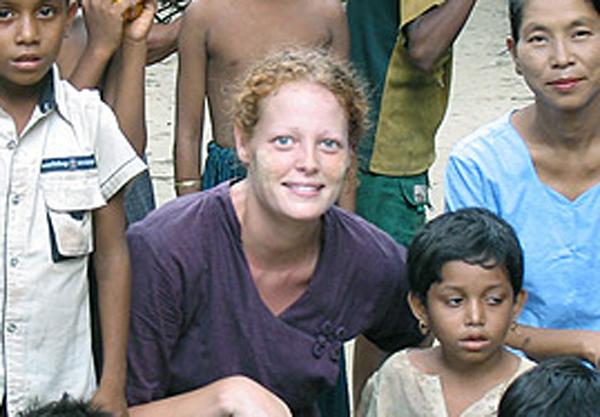
By: Kelsey Reno, Staff Writer
Kaci Hickox, 33, is a nurse from Maine who went to Sierra Leone to help combat Ebola and care for those infected. Hickox returned to the United States on October 24th through Newark Liberty International Airport in New Jersey.[1] When she landed she was quarantined for the weekend until being allowed to drive to her home in Maine.[2] Maine officials then tried to legally enforce a quarantine of Hickox.[3] She refused to follow this quarantine, however, stating that it was not scientifically proven necessary. [4] On November 3rd, District Court Chief Judge Charles LaVerdiere granted an order requiring her to only submit to health monitoring rather than the quarantine.[5] Hickox stating that she would avoid going into her local town or other public places until November 10th, the end of the possible 21 day incubation period. She also stated that “sometimes we fight for our rights, but it doesn’t mean we have to act on them,” reporting that her fight was more for the many other health workers who will be returning in the coming months from high-risk Ebola areas.[6]
Hickox’s highly reported legal battle comes with a growing media frenzy and public debate over the threat of Ebola. The first cases of the recent outbreak were recorded in West Africa in March of this year. [7] According to the World Health Organization (WHO) this is the “largest and most complex Ebola outbreak” since it was first discovered in 1976, with more deaths than all previous outbreaks combined. [8] Ebola spreads from human to human through direct contact with blood, secretions, and body fluids of those infected. It can also spread by contact of contaminated surfaces that have come in contact with these fluids. [9] A person is not infectious until they begin to show symptoms but once they develop symptoms they remain infectious until the virus completely leaves their bodies. According to the WHO, this could be weeks after a person has recovered.[10] The onset of Ebola symptoms ranges between 2-21 days.[11] In addition to samples from Ebola patients are extremely infections and the WHO suggest testing should be done under maximum biological containment conditions.[12]
With the knowledge of the infectiousness of Ebola and the number of health workers that will foreseeably be coming back to the United States over the next few months the legality of mandatory quarantines have been called into question. Professor Eugene Kontorovich of Northwestern University School of Law has stated his view that in matters of infectious and lethal diseases the courts would most likely uphold a quarantine.[13] Kontorovich cited to U.S. ex rel Siegel v. Shinnick, 219 F.Supp. 789 (E.D. NY 1963) that stated public health officers “deal in a terrible context and the consequences of mistaken indulgence can be irretrievably tragic.”[14] The District Court upheld the use of a 14 day quarantine in this case for a plaintiff who might have been exposed to small pox while abroad, Siegel 219 F.Supp. 789. As time passes and more health care workers return to the US from high risk areas, the question of mandatory quarantines will only continue to be at the forefront of public concern.
[1] ABC http://abcnews.go.com/Health/ebola-nurse-kaci-hickox-agrees-monitor-nov-10/story?id=26658553
[2] ABC
[3] ABC
[4] ABC
[5] USA http://www.usatoday.com/story/news/nation/2014/11/02/ebola-nurse-will-avoid-public-places/18374889/
[6] USA
[7] WHO http://www.who.int/mediacentre/factsheets/fs103/en/
[8] WHO
[9] WHO
[10] WHO
[11] WHO
[12] WHO
[13] Washington Post http://www.washingtonpost.com/news/volokh-conspiracy/wp/2014/10/27/constitutional-challenge-to-quarantine-unlikely-to-succeed/
[14] Washington Post